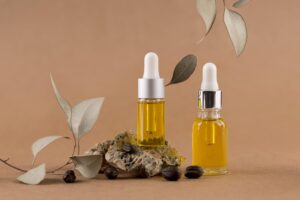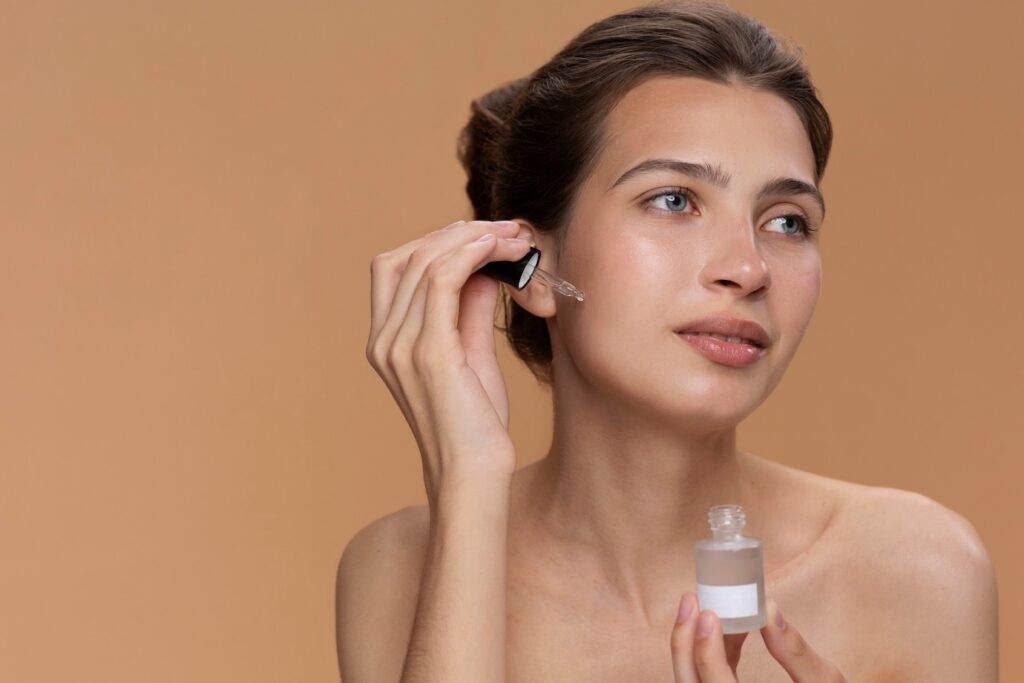Sweat and the nation’s ongoing heat waves combine to create an unfavorable situation for the skin. During this time, breakouts, rashes, and acne can all worsen; therefore, it makes sense to switch to lighter cosmetics. A serum for the face is one of these necessities. Dr. Nishita Ranka, the medical director and founder of her skin clinic, explains why it’s important: “I am asked a lot of questions about face serums effectiveness in place of creams in the summer. You need an efficient and pleasant skincare routine because of the extreme heat and humidity, and a serum works well for that.
What is it?
Water-based, lightweight serums are made to penetrate deep into the skin with potent active ingredients.
Dr. Geetika Srivastav, the creator of the Delhi-based Influenza Clinic, explains, “Face serums have become powerful elixirs. These are thin, quickly absorbing formulas made to target particular skin conditions like acne, pigmentation, wrinkles, fine lines, sun damage, dryness, and dullness. Because of their high concentration of active substances, they are sometimes referred to as “actives” and are usually applied as the initial layer on the skin after cleansing.

The benefits of serum are multifunctional.
Dr. Nishita Ranka notes that there are differences between a cream and a serum, saying that the skin tends to produce more oil during the Indian summer, which makes heavy creams less desirable. This is where serums come in really handy. They absorb quickly and don’t leave a greasy residue, which makes them perfect in warm, humid weather.
As she continues, “A hyaluronic acid serum provides essential hydration without the heaviness of a cream and attracts moisture to the skin, keeping it hydrated in the heat.” Serums can also address a variety of issues. Conversely, a vitamin C serum helps lessen pigmentation and help fight free radical damage caused by increasing sun exposure. Adding SPF to certain serums and moisturizers can be a practical alternative.
In certain situations, use a mild moisturizer.
An exception might occur. Dr. Ranka states that serums are a fantastic supplement to summertime skincare regimens, but they shouldn’t take the place of creams completely. “To lock in the moisture and active ingredients from the serum, use a lightweight, non-comedogenic moisturizer,” she suggests.
Dermatologist Dr. Prerna Sikka of Dr. Karishma’s Aesthetics in Bengaluru adds, “Skin tends to get more dehydrated in dryer regions, which are usually away from the coast; in this case, cream formulations at night may be preferable.” During the day, go for a gel-based or lightweight moisturizer.

Selecting the appropriate serum
Here’s how you do it, according to Dr. Geetika Srivastava:
Determine your skin type. AHA, retinol, and even vitamin C should be avoided if you have sensitive or dry skin. Before using a serum, speak with a dermatologist as well.
Select a serum according to your skin type—hydrating, brightening, or anti-ageing. If you’ve never done this before, start out with less focus and gradually raise the potency. Avoid using scents and parabens.
Various kinds of serums
Serums that fight ageing
These serums improve skin texture and minimize fine lines and wrinkles by stimulating the formation of collagen and elastin, which are made possible by their components, which include retinol, vitamin A, and bakuchiol. Typically used at night; avoid using it while pregnant.
Brightening serums for skin
These brightening serums, which contain vitamin C, niacinamide, and other ingredients, help balance out skin tone, lessen hyperpigmentation, and leave skin looking beautiful. Apply both during the day and at night (you should use a moisturizing product to prevent dry skin).

Serums that heal skin A
These serums, which are enriched with antioxidants like vitamins C, E, and A, fight UV damage by preventing and reversing photoaging symptoms, including pigmentation and texture problems.
acne-prevention serums
These serums, which are designed to reduce inflammation and prevent breakouts in acne-prone skin, contain salicylic acid or benzoyl peroxide.
Serums that hydrate
These serums, which contain hyaluronic acid, ceramides, or peptides, intensely hydrate the skin, leaving it smooth and plump.
What is the proper serum layering regimen?

She outlines how to use serums in your skincare regimen.
1: Wash your skin
2: Apply a serum to bare skin (based on your skin type)
3: Moisturize to keep the moisture in your skin
4: Apply SPF-rated sunscreen to avoid being exposed to the sun.
5: Apply light makeup.
Remember to wait until each product has had time to sink into your skin before applying another coat.
Recall:
Do a patch test first to ensure there are no negative responses.
Now is the time to apply
The active ingredients in the face serums determine this. You must only use retinol at night. You can use hyaluronic acid, niacinamide, and vitamin C both during the day and at night.

